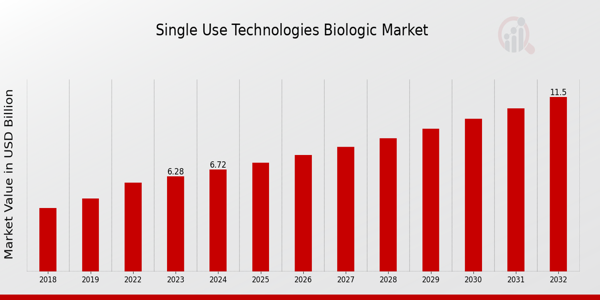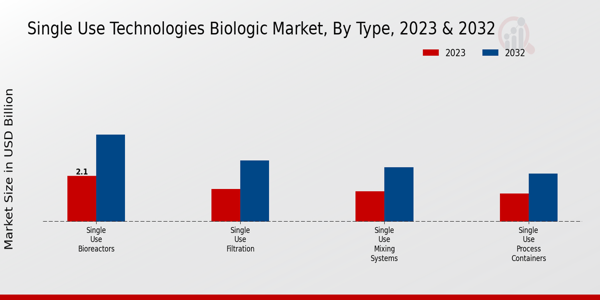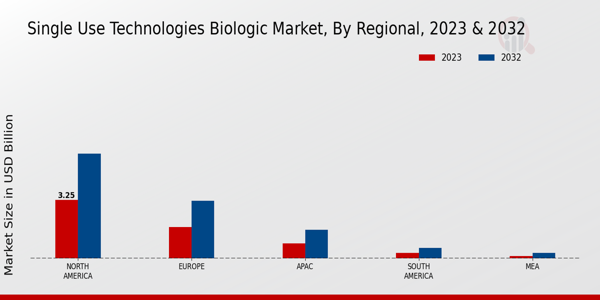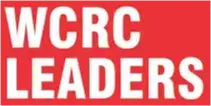Global Single-Use Technologies Biologic Market Overview
As per MRFR analysis, the Single-Use Technologies Biologic Market Size was estimated at 7.18 (USD Billion) in 2024. The Single-Use Technologies Biologic Market Industry is expected to grow from 7.68 (USD Billion) in 2025 to 14.06 (USD Billion) till 2034, at a CAGR (growth rate) is expected to be around 6.95% during the forecast period (2025 - 2034).
Key Single-Use Technologies Biologic Market Trends Highlighted
The Single-Use Technologies Biologic Market is experiencing significant growth driven by the increasing demand for biologics and the need for cost-effective manufacturing solutions. As pharmaceutical companies seek to reduce contamination risks and improve flexibility in production, single-use technologies offer an attractive alternative to traditional multi-use systems. The rising focus on biopharmaceuticals and personalized medicine further propels this trend, as these innovative therapies often require specialized production methods. Adoption is also boosted by regulatory pressures to ensure product quality and safety, making single-use systems a viable choice for manufacturers aiming to comply with stringent requirements.There is a substantial opportunity to explore advanced materials and technologies that enhance the performance of single-use systems. Companies can capitalize on the growing interest in automation and digitalization within the bioprocessing arena, leading to more streamlined operations and improved data management. New market entrants can also focus on developing customized solutions that cater to the specific needs of small and medium-sized enterprises, which may face unique challenges in scaling up their production. Recent trends indicate a shift towards sustainability, as stakeholders are increasingly aware of the environmental impact of disposable products.Efforts to develop eco-friendly materials and recycling options for single-use devices are gaining momentum. Additionally, collaborative initiatives between industry players, academia, and regulatory bodies are helping to foster innovation and streamline development processes. These trends highlight a concerted effort to enhance efficiency, reduce waste, and meet evolving market demands while positioning the biological sector for long-term sustainability in a rapidly changing landscape.

Source: Primary Research, Secondary Research, MRFR Database and Analyst Review
Single-Use Technologies Biologic Market Drivers
Rising Demand for Biologics
The Single-Use Technologies Biologic Market Industry is experiencing a significant surge in demand for biologics due to their effectiveness in treating various chronic diseases and medical conditions. As the global prevalence of chronic diseases such as cancer and autoimmune disorders continues to rise, healthcare providers are increasingly turning to biologics as a preferred treatment option. This shift is influenced by the growing body of evidence supporting the efficacy of biologics compared to traditional therapies.Moreover, advancements in biological research are leading to the development of novel therapies that are more targeted and have fewer side effects. The expanding pipeline of biologic drugs necessitates the use of single-use technologies in manufacturing processes, which enhance flexibility and reduce contamination risks. Thus, the rising demand for biologics not only fuels growth in the Single-Use Technologies Biologic Market but also drives innovation in manufacturing techniques, contributing to a more efficient healthcare landscape.
Cost-Effectiveness of Single-Use Systems
The Single-Use Technologies Biologic Market Industry is being propelled by the cost advantages that single-use systems offer. Traditional manufacturing processes often involve extensive cleaning and validation cycles, which are both time-consuming and expensive. Single-use technologies eliminate the need for these time-intensive procedures, allowing manufacturers to save on operational costs and streamline production processes. This shift not only reduces capital expenditure but also enhances overall efficiency, making bioprocessing more accessible for companies of various sizes.The increasing preference for cost-effective manufacturing solutions is expected to spur further adoption of single-use technologies in biologics production, thereby driving market growth.
Growth in Biomanufacturing Capacity
As the demand for biologics continues to outpace supply, there is a corresponding growth in biomanufacturing capacity. The Single-Use Technologies Biologic Market Industry is benefitting from this trend as manufacturers invest in expanding production capabilities. This is essential to meet the increasing healthcare demands and the expected surge in biologic therapies in the market. Single-use technologies provide the flexibility and scalability required for these expanded operations, allowing for the efficient production of multiple biologic products while minimizing downtime and contamination risks.As biomanufacturers focus on scaling up their operations, the reliance on single-use technologies will likely play a crucial role in ensuring that they can meet future demands effectively.
Single-Use Technologies Biologic Market Segment Insights
Single-Use Technologies Biologic Market Type Insights
The Single-Use Technologies Biologic Market is witnessing considerable expansion as it gears towards an estimated value of 11.5 USD Billion by 2032, growing from 6.28 USD Billion in 2023. Key segments within this market include Single-Use Bioreactors, Single-Use Filtration, Single-Use Mixing Systems, and Single-Use Process Containers, each contributing significantly to the overall economic landscape. Single-Use Bioreactors currently represents a market value of 2.1 USD Billion in 2023 and is expected to reach 4.0 USD Billion by 2032, indicating its dominance as the largest segment. The increased adoption of bioprocessing and vaccines has made Single-Use Bioreactors a crucial element in the manufacturing processes, enabling accelerated production timelines and enhanced flexibility, which are major drivers for market growth. In addition, the Single-Use Filtration segment is valued at 1.5 USD Billion and is projected to grow to 2.8 USD Billion by 2032, showcasing its significance in ensuring the purity and quality of biopharmaceutical products. Filtration plays a vital role in separating contaminants from drug substances, ensuring only the highest quality products reach the market and thereby maintaining regulatory compliance. Furthermore, the Single-Use Mixing Systems account for a market value of 1.4 USD Billion in 2023, with expectations of escalating to 2.5 USD Billion in 2032. These systems enhance the efficiency of blending different components in the manufacturing process, promoting uniformity and consistency in product quality, which are essential for successful biopharmaceutical development. Lastly, Single-Use Process Containers, holding a value of 1.28 USD Billion, are anticipated to rise to 2.2 USD Billion by 2032. This segment is vital for safely transporting and storing biologics, thereby facilitating their movement through various production stages while maintaining integrity and sterility. Overall, while each of these segments plays an indispensable role in the Single-Use Technologies Biologic Market, Single-Use Bioreactors stand out by holding a majority share, primarily due to their necessity in modern biopharmaceutical manufacturing processes. The increasing focus on cost-effective production methods and streamlined workflows presents abundant opportunities for growth across all segments, paving the way for enhanced market dynamics in the coming years. With significant investments directed towards innovation and efficiency, the Single-Use Technologies Biologic Market is set to integrate advanced solutions, ultimately positioning it for sustained growth in the foreseeable future.

Source: Primary Research, Secondary Research, MRFR Database and Analyst Review
Single-Use Technologies Biologic Market Application Insights
The Single-Use Technologies Biologic Market is poised to showcase significant growth, with an overall valuation of 6.28 billion USD in 2023. Central to this is the Application segment, which encompasses various categories, including Vaccines, Monoclonal Antibodies, Recombinant Proteins, and Cellular Therapy. Vaccines are crucial for public health and have surged in demand due to global health initiatives. Monoclonal antibodies exhibit strong relevance in treating various diseases, making them a substantial contributor within this space. Recombinant proteins continue to be essential in therapeutics and diagnostics, while Cellular Therapy, with its innovative approaches, is gaining traction for treating chronic conditions.This diverse Application segment displays an expanding array of opportunities driven by advancements in technology and rising healthcare needs. The Single-Use Technologies Biologic Market revenue is supported by evolving trends in bioprocessing that enhance efficiency and reduce the risk of contamination. Factors such as increasing regulatory approvals and patient-centric therapies contribute to the market growth, reflecting the overall industry optimism towards biologics and their applications across healthcare.
Single-Use Technologies Biologic Market End Use Insights
The Single-Use Technologies Biologic Market has been experiencing significant growth, with a market value of 6.28 billion USD in 2023, projected to rise further in the coming years. A notable aspect of this market is its End Use segmentation, which includes key players like Pharmaceutical Companies, Biotechnology Companies, Research Institutions, and Contract Manufacturing Organizations. Pharmaceutical Companies hold a significant stake as they leverage single-use technologies to enhance production efficiency and reduce contamination risks.Biotechnology Companies also play a major role, utilizing these technologies for their complex biologics, thus ensuring regulatory compliance and operational flexibility. Research Institutions increasingly adopt single-use systems to streamline their processes while minimizing costs. Additionally, Contract Manufacturing Organizations are vital within this segment, responding to the growing demand for outsourced biologic development and manufacturing services. The focus on reducing overall operational costs and improving product yields has caused various players to capitalize on advancements in single-use technology, reflecting broader trends like automation and sustainability within the industry.These dynamics continue to shape the Single-Use Technologies Biologic Market statistics, contributing to a robust growth trajectory.
Single-Use Technologies Biologic Market Material Insights
The Single-Use Technologies Biologic Market, valued at 6.28 USD Billion in 2023, is supported by various materials that play a crucial role in its growth trajectory. Notably, the Material segment encompasses options like Polypropylene, Polyethylene, Polyvinyl Chloride, and Polystyrene, with each type contributing significantly to the industry’s innovation and usability. Polypropylene is widely recognized for its chemical resistance and adaptability, making it a preferred choice in biopharmaceutical applications. Meanwhile, Polyethylene is valued for its flexibility and durability, often used in packaging and storage solutions.Polyvinyl Chloride continues to dominate due to its versatile properties and lower costs, whereas Polystyrene serves crucial purposes in various disposable applications. Overall, the diverse range of materials within this market not only caters to the specific demands of biological processes but also aligns with evolving trends geared toward efficiency and sustainability, emphasizing how the Single-Use Technologies Biologic Market revenue might expand significantly over the upcoming years, backed by robust market growth and evolving consumer needs.
Single-Use Technologies Biologic Market Regional Insights
The Single-Use Technologies Biologic Market is projected to reach a valuation of 6.28 USD Billion in 2023, with a significant growth trajectory forecasted for the upcoming years. In this regional breakdown, North America leads the market with a valuation of 3.25 USD Billion, indicating a majority holding and reflecting its advanced healthcare infrastructure and innovation in biomanufacturing processes. Europe follows with a valuation of 1.75 USD Billion, presenting itself as a significant player due to strong regulatory frameworks and investments in research and development.APAC, valued at 0.85 USD Billion, shows promising growth potential, driven by increased healthcare expenditure and rising biotech collaborations. Meanwhile, South America and MEA, valued at 0.3 USD Billion and 0.13 USD Billion, respectively, are smaller markets but are gaining attention as emerging regions for investment. The presence of these varying regional valuations underscores the Single-Use Technologies Biologic Market segmentation and the unique challenges and opportunities each area presents, contributing to the overall market growth by catering to local demands and regulatory needs.

Source: Primary Research, Secondary Research, MRFR Database and Analyst Review
Single-Use Technologies Biologic Market Key Players and Competitive Insights
The Single-Use Technologies Biologic Market is characterized by rapid growth and a dynamic competitive landscape, fueled by increasing demand for biopharmaceuticals and advancements in manufacturing processes. As the industry shifts towards more flexible and efficient production methods, single-use systems have gained popularity due to their ability to minimize the risk of cross-contamination, reduce cleaning times, and lower overall operational costs. This market features a variety of players ranging from established pharmaceutical giants to specialized technology providers, all striving to enhance their product offerings and capture market share. Competitive insights reveal the importance of innovation and strategic partnerships, as well as the need for manufacturers to comply with stringent regulatory standards while addressing the evolving needs of biomanufacturers.Thermo Fisher Scientific stands out in the Single-Use Technologies Biologic Market with a robust portfolio of products designed to meet the unique requirements of biopharmaceutical production. The company is known for its strong commitment to research and development, allowing it to continuously innovate and improve its single-use technology solutions. Its extensive manufacturing capabilities and global reach enable Thermo Fisher Scientific to provide efficient and customizable solutions tailored to the specifications of its clients. The company's focus on quality, reliability, and customer support has solidified its position as a trusted provider in this market. Furthermore, Thermo Fisher Scientific's strategic collaborations with key industry players enhance its market presence and foster the integration of cutting-edge technology into its product lineup, thereby driving growth and customer loyalty.Abbott Laboratories brings significant value to the Single-Use Technologies Biologic Market through its comprehensive understanding of bioprocessing and commitment to advancing healthcare solutions. The company leverages its extensive experience in the healthcare sector to develop single-use technologies that align with the needs of biopharmaceutical manufacturers. Abbott Laboratories is recognized for its emphasis on quality and safety, ensuring that its products meet stringent regulatory standards. By focusing on innovation and continuous improvement, Abbott Laboratories has managed to create tailored solutions that support efficient biomanufacturing processes while addressing the critical demands for speed and flexibility in production. The company's strategic initiatives emphasize collaborations with other industry leaders, strengthening its footprint in the single-use technologies market and expanding its capabilities in delivering state-of-the-art solutions for biologics manufacturing.
Key Companies in the Single-Use Technologies Biologic Market Include
- Thermo Fisher Scientific
- Abbott Laboratories
- Waters Corporation
- Pall Corporation
- Fujifilm Diosynth Biotechnologies
- Roche Diagnostics
- Baxter International
- Eppendorf AG
- GE Healthcare
- Cytiva
- Danaher Corporation
- MilliporeSigma
- Lonza Group
- Sartorius Stedim Biotech
- Merck KGaA
Single-Use Technologies Biologic Market Industry Developments
Recent developments in the Single-Use Technologies Biologic Market have showcased significant collaborations and advancements among industry leaders. Companies like Thermo Fisher Scientific and Roche Diagnostics are focusing on innovative solutions to improve bioprocessing efficiency. Abbott Laboratories has introduced new single-use devices aimed at enhancing diagnostic capabilities. Notably, Pall Corporation is advancing its single-use filtration technologies to cater to the growing demand for biopharmaceutical manufacturing. On the mergers and acquisitions front, GE Healthcare's acquisition of a specialized biotech firm has strengthened its capabilities in single-use technologies, while Cytiva's recent strategic merger has increased its market position. The mergers have garnered attention and are expected to impact market dynamics positively. The market valuation for companies like Merck KGaA and Sartorius Stedim Biotech continues to rise, driven by increased investment in biomanufacturing solutions. The growing focus on reducing contamination risks and increasing productivity has propelled market growth, aligning with industry trends toward sustainable and cost-effective production processes. Various companies, including MilliporeSigma and Lonza Group, are also investing in advanced technologies to boost the efficiency and adaptability of single-use systems in biopharmaceutical applications.
- Single-Use Technologies Biologic Market Segmentation Insights
- Single-Use Technologies Biologic Market Type Outlook
- Single-Use Bioreactors
- Single-Use Filtration
- Single-Use Mixing Systems
- Single-Use Process Containers
- Single-Use Technologies Biologic Market Application Outlook
- Vaccines
- Monoclonal Antibodies
- Recombinant Proteins
- Cellular Therapy
- Single-Use Technologies Biologic Market End Use Outlook
- Pharmaceutical Companies
- Biotechnology Companies
- Research Institutions
- Contract Manufacturing Organizations
- Single-Use Technologies Biologic Market Material Outlook
- Polypropylene
- Polyethylene
- Polyvinyl Chloride
- Polystyrene
| Report Attribute/Metric |
Details |
|
Market Size 2024
|
7.18 (USD Billion)
|
|
Market Size 2025
|
7.68 (USD Billion)
|
|
Market Size 2034
|
14.06 (USD Billion)
|
|
Compound Annual Growth Rate (CAGR)
|
6.95 % (2025 - 2034)
|
|
Report Coverage
|
Revenue Forecast, Competitive Landscape, Growth Factors, and Trends
|
|
Base Year
|
2024
|
|
Market Forecast Period
|
2025 - 2034
|
|
Historical Data
|
2020 - 2024
|
| Market Forecast Units |
USD Billion |
| Key Companies Profiled |
Thermo Fisher Scientific, Abbott Laboratories, Waters Corporation, Pall Corporation, Fujifilm Diosynth Biotechnologies, Roche Diagnostics, Baxter International, Eppendorf AG, GE Healthcare, Cytiva, Danaher Corporation, MilliporeSigma, Lonza Group, Sartorius Stedim Biotech, Merck KGaA |
| Segments Covered |
Type, Application, End Use, Material, Regional |
| Key Market Opportunities |
Increased demand for biologics, Rising adoption in emerging markets, Innovations in biomanufacturing processes, Enhanced regulatory compliance and efficiency, Sustainability in single-use systems |
| Key Market Dynamics |
Increased demand for biologics, Cost efficiency and flexibility, Regulatory and compliance requirements, Technological advancements in production, and Rising need for personalized medicine |
| Countries Covered |
North America, Europe, APAC, South America, MEA |
Frequently Asked Questions (FAQ) :
The Single-Use Technologies Biologic Market is expected to be valued at 11.5 USD Billion in 2034.
The CAGR for the Single-Use Technologies Biologic Market is expected to be 6.95% from 2025 to 2034.
North America holds the largest market share with a value of 3.25 USD Billion in 2023.
The market for Single-Use Bioreactors is expected to grow from 2.1 USD Billion in 2023 to 4.0 USD Billion in 2034.
Major players in the market include Thermo Fisher Scientific, Abbott Laboratories, Waters Corporation, and Pall Corporation.
The estimated market value for Single-Use Filtration is 2.8 USD Billion by 2034.
The APAC region's market is expected to grow to 1.6 USD Billion by 2034.
Key applications driving growth include biopharmaceutical production, vaccine development, and cell culture processes.
The Single-Use Mixing Systems segment is valued at 2.5 USD Billion in 2034.
Challenges may include regulatory compliance, high manufacturing costs, and scalability issues in production.





























